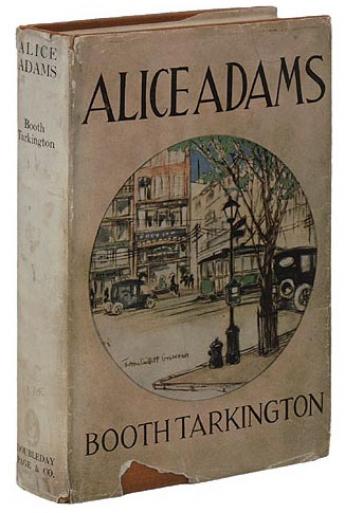Tip Antiquarian Booksellers' Association of America
Collecting Rare Books and First Editions: Booth Tarkington

By Tom Congalton
Booth Tarkington as collectible author is an enigma, wrapped in a contradiction, and drizzled with irony. Ask any book collector or dealer who have been around for a long time and they'll probably shrug – who cares about Booth Tarkington? But the funny thing is that he has more collected books than many more highly regarded authors. He wrote two of the first four Pulitzer Prize novels, The Magnicent Ambersons (1919) and Alice Adams (1922), both of which are wicked scarce in jacket. The first title is also sought as a film source for the 1942 Orson Welles' film, as are several of his other books including Presenting Lily Mars (1933), Monsieur Beaucaire (1900, the 1924 film featured Rudolph Valentino), and Seventeen (1916). One of the primary guides to collectible children's books is entitled Peter Parley to Penrod, the later title, Penrod (1914), is a Tarkington novel, and very scarce in jacket. Even booksellers have a favorite Tarkington title – Rumbin Galleries (1937) about a European émigré dealing in art and antiques in New York City, who dispenses wisdom about the antiquarian trades, all the while smiling benevolently upon his lovely assistant and her beamish beau. There is even a market for him as an Indiana author – notably for his first book, The Gentleman from Indiana (1899, be sure to note whether the ear of corn on the spine of the book is pointing up or down!). He wrote approximately a zillion other books as well, some of them good, many of them forgotten. But then who cares about Booth Tarkington anyway?
The article is published by permission of Between the Covers Rare Books, Inc. Thank you very much.
